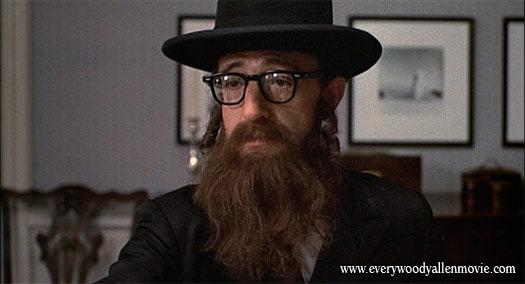
When I was growing up in the heyday of Washington, D.C.'s crime wave, when our murder rate made national headlines and a serial killer nicknamed the shotgun stalker prowled the now-pricey streets of Columbia Heights, the Washington Bullets, our basketball team, abruptly announced they were changing their name. Owner Abe Pollin explained that the name made him uncomfortable, because so many bullets were being used to kill D.C.'s citizenry and had just been used against Israeli Prime Minister Yitzhak Rabin.
Now, a loose campaign is afoot to pressure the Washington Redskins into changing their name. At least on an ethical front, the decision is a no-brainer. The name is an ethnic slur and deeply offensive. Tradition is not a defense if the tradition is wrong. If the Bullets can change their name because of negative associations with violence, the Skins should be able to follow suit.
I'm trying to imagine a world in which Jews, the ethnic group to which both myself and Redskins owner Daniel Snyder belong, were represented the same way. What if D.C.'s football team were The Washington Yids? What if, rather than a line drawing of a clenched-jawed warrior, their symbol was this?:

This is, to say the least, unlikely. Neither sensible money management nor impressive beard length are fearsome traits in a sports team. If it did happen, we'd see a widespread outcry against both the name and symbol. Not only because they're offensive to Jews, but because they perpetuate very, very narrow stereotypes about Jews.
It is for this second reason that those of us who aren't Native American have a stake in changing the Redskins name and branding. Stereotypes don't only harm those they unfairly portray. Two decades of mind and social science studies conclusively reveal that stereotypes play a significant role in the ways we perceive, consider and interact with people who aren't like us, impacting our decision-making in powerful and subconscious ways, thanks to a phenomenon called implicit bias.
Implicit bias is the end result of the normal way our brains function. As we go about our day, our minds constantly filter and process the smorgasbord of information being thrown at us. This is how we know without consciously thinking about it that a parked car isn't much of a threat but a speeding car running a red light is. We automatically filter stimuli into categories, and then these categories into schema, which are like stories our mind uses without our conscious knowledge.
These schema often contain stereotypes, or assumptions about people in a given category. In my recently-popular neighborhood in Brooklyn, I'm constantly giving directions to lost international tourists. I know they're lost because they're looking around, that they're tourists because they wear fanny packs and occasionally look up, and I know they're international because, well, I can't tell you how I know they are. I just do. This is stereotyping at work.
Stereotyping, in other words, isn't always bad. It helps those lost Dutch families get directions to the closest coffee shop. But when stereotypes link up with negative assumptions about groups of people, the phenomenon of implicit bias occurs and our decisions are shaped by negative assumptions we didn't even know we carry.
Implicit bias is part of the human condition. It is something we all experience. But that doesn't mean that we should not invest time and energy into mitigating its effects and fighting its causes. After all, we want to be making the best decisions we can, and we would all rather be free of the high levels of social anxiety that arise when we interact with people from other races.
Challenging stereotypes is one way to do this. Many different factors go into stereotype formation, including our own life experience, but, particularly when we're talking about groups we don't encounter often, portrayals in the media matter a great deal. Which, given Native Americans' lack of visibility in our popular culture, makes fights over symbols like the Redskins' name and logo more, not less, important.
The Redskins brand perpetuates stereotypes of Native Americans as the rugged savages of Wild West legend. It also relegates an entire people to the realm of myth, which is to say, the realm of things that do not exist. But Native Americans do exist. According to the last census, there are over five million Native Americans living in the United States. Yet they remain largely invisible in our popular culture and political discourse.
This is obviously not all the Washington Redskins fault, and the Skins are not alone amongst U.S. athletic teams when it comes to offensive use of Native American imagery. But neither of these are excuses. It's past time for the franchise and Daniel Snyder to show leadership and change the name.